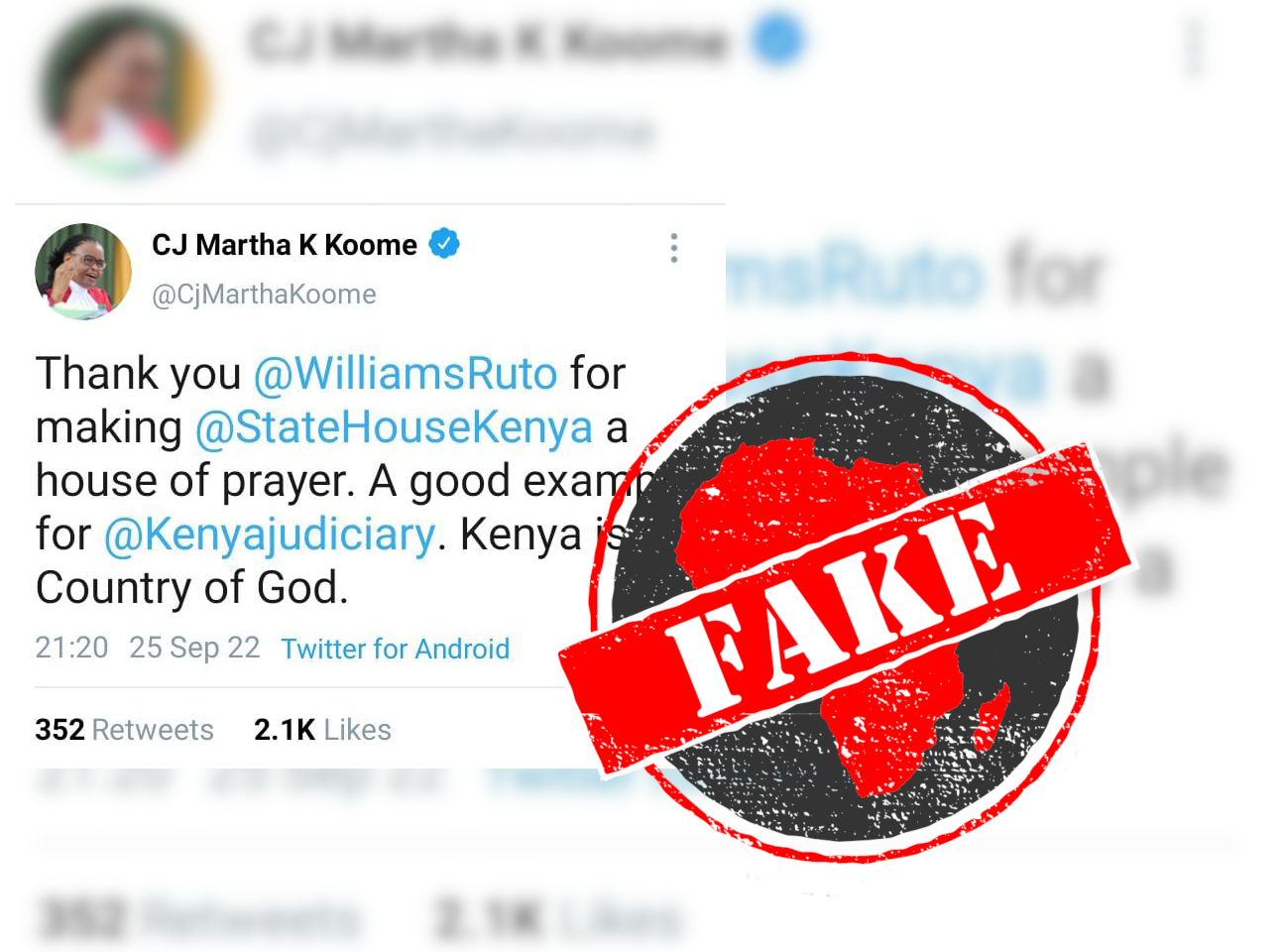IN SHORT: Kenya’s supreme court recently upheld William Ruto’s August 2022 election as president. But the court’s leader, chief justice Martha Koome, didn’t thank Ruto for holding a church service at State House.
“Thank you @WilliamsRuto for making @StateHouseKenya a good house of prayer. A good example for @Kenyajudiciary. Kenya is a country of God,” reads what seems to be a screenshot of a tweet by chief justice Martha Koome, circulating on social media.
The screenshot is dated 25 September 2022. One caption to it reads: “Lenaola and Koome's credibility and careers are gone. Just like that. People think it is a joke.”
Justice Isaac Lenaola is one of seven supreme court judges who determined a petition by Raila Odinga, the leader of the Azimio coalition, challenging deputy president William Ruto’s electoral victory in the 9 August elections.
The court, headed by Koome, upheld Ruto’s win on 5 September.
State House is the official residence of the president. It has been in the public eye after a church service was held there on 25 September. Ruto presented himself as a religious man during his campaign.
Kenya’s constitution does not provide for a state religion.
But did Koome really tweet this?
Elements of screenshot don’t match Twitter’s format

The handle in the screenshot is @CjMarthaKoome – note the small J. But the handle of Koome’s verified account is @CJMarthaKoome. Note the capital J.
And in the screenshot, the time, date and device used has no separator, hinting that it may be fake. Real tweets have the time, date and device separated by a full stop.
A quick Twitter search for the screenshot’s text came up empty. Koome’s Twitter timeline also has no tweets dated 25 September.
On 26 September Kenya’s judiciary posted the screenshot on its verified Twitter account with the word “FAKE” written across it in red.
Republish our content for free
For publishers: what to do if your post is rated false
A fact-checker has rated your Facebook or Instagram post as “false”, “altered”, “partly false” or “missing context”. This could have serious consequences. What do you do?
Click on our guide for the steps you should follow.
Publishers guideAfrica Check teams up with Facebook
Africa Check is a partner in Meta's third-party fact-checking programme to help stop the spread of false information on social media.
The content we rate as “false” will be downgraded on Facebook and Instagram. This means fewer people will see it.
You can also help identify false information on Facebook. This guide explains how.




Add new comment